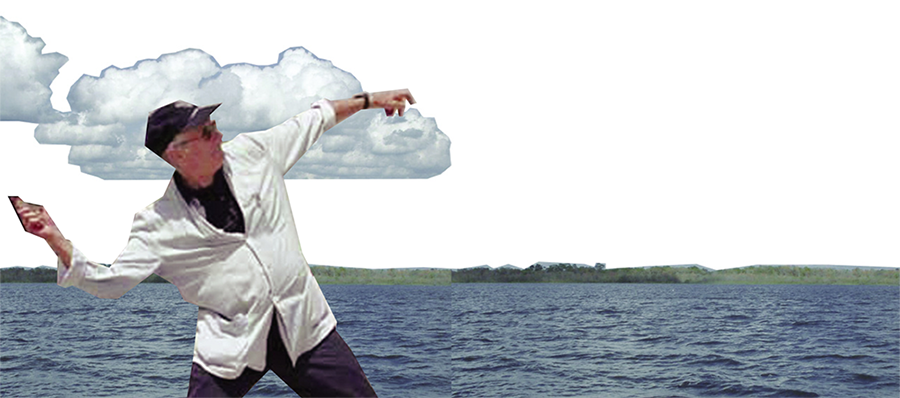
Once we begin to think of Orientalism as a kind of Western projection onto and will to govern over the Orient, we will encounter few surprises.
—Edward Said, Orientalism
Edward Said never was one for surprises. His style was unmistakable and his positions persevering, while in his writing, lecturing and research, Said would resolutely stick to the canon — to the distinct expanse of hallowed western learning, from the Greeks to the moderns, and above all the canon of English literature. Of course he criticized it fiercely, with the sweltering, anti-imperialist verve that quickly became his trademark. But much as he mocked the idea of a truly existing Orient beyond the fantasies of the West, Said rarely questioned the accepted conception of western civilization as a coherent cultural body, exposing it as a chimera in its own right. At a time when his postcolonial cohorts were lovingly deconstructing euro and phallocentricities, highs and lows, insides and outsides, and doting on all that was hitherto ignored or forcefully banned from academia, Said generally prioritized political rereadings of high literature, from Beowulf to Virginia Woolf, declaring it the most indispensable part of the curriculum. He often regarded deviations from the devoted study of Great Texts as concessions to fashion or worse. “Reputable, distinguished departments of literature,” he would bellow, “are now giving students more Habermas, Derrida and Hegel to read than Joyce, Flaubert and Schiller.” This was ultimately a symptom, he explained, of the ongoing sell-out of the humanities to neoliberal interests.
Some like to point out that, after all, the western literary tradition gave Said his career, and so, no matter how eloquently he exposed it as the colonialist cant that it could be, abandoning it would have been unthinkable. Said’s many critics were also quick to point out his discomfort with issues of class and his dogged insistence on the racial heritage of colonialism. This, they would say, was actually a self-victimizing strategy of privileged third world intellectuals.
It’s indeed obvious that Edward Said was a gentleman scholar with an old fashioned sort of agenda, preferring unashamed positions over self-reflexive pirouette, the dynamics of wrath over the dignity of nuance. But thinking back, try to picture what a French poststructuralist incarnation of Said might have been. Devenir orient, devenir animal, l’occident est-il l’essence formelle du signifié, de la présence? Not the same.
Despite his indebtedness to, among others, Foucault, what set Edward Said apart from the French pantheon and their Anglophone devotees, including me, was that Said is a great read. Said is the Agatha Christie of theory: The plot is complex, ingenious and fascinating to follow, the style simple and unpretentious — and, in the end, both victim and villain are clearly identified.
Writing aside, I once saw Said give a speech in the sumptuous Grand Ballroom of the Fairmont Hotel in San Francisco. It was December of 1997, and though a colossal chandelier blocked my view, I concentrated on the sea of transfixed scholars around me, all of us quivering delightedly in our seats. Said gave us a reason to be. This was his one greatest talent: He could actually make you believe, if just for a moment, that academia is not pointless.
If his clarity came at the cost of complexity of content, his brute intellectual muscle ultimately helped redefine Anglo-American academia as we know it. He demonstrated that Orientalism does in deed exist, as an overpowering discursive contraption, brilliant, surreptitious, and monumental at once, thoroughly conservative and yet incredibly mobilizing, a tenuous abstraction with very tangible effects. Not unlike Said himself.